The Matrix Resurrections (2021)
Directed by: Lana Wachowski
Written by: Aleksandar Hemon, David Mitchell, Lana Wachowski
Starring: Carrie-Anne Moss, Jessica Henwick, Keanu Reeves, Yahya Abdul-Mateen II
USA
IN CINEMAS NOW
RUNNING TIME: 148 mins
REVIEWED BY: Dr Lenera
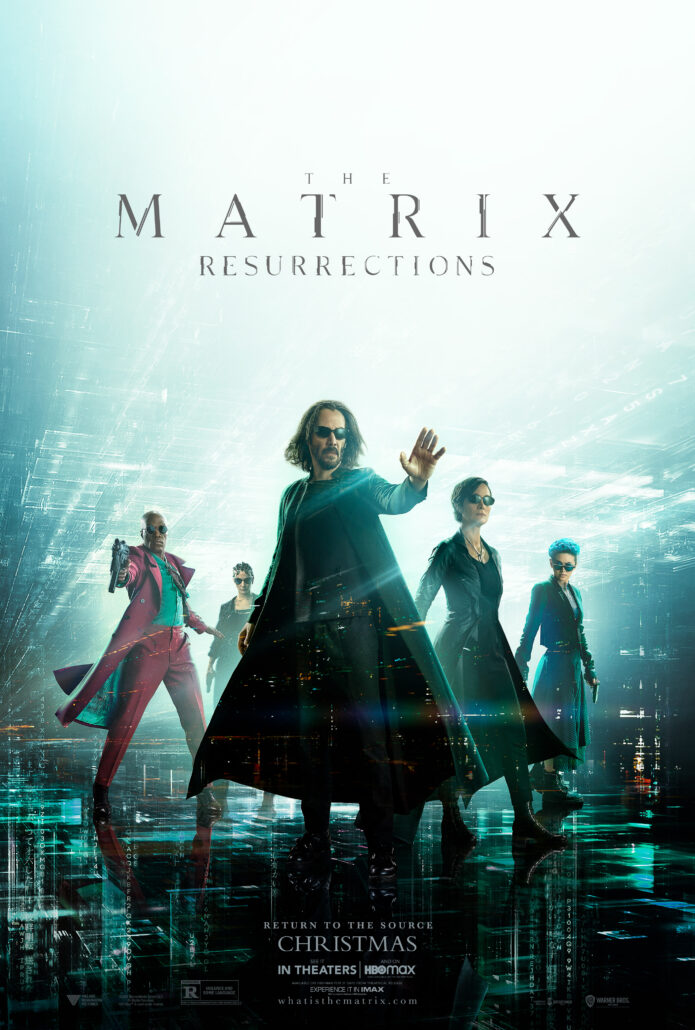
Neo actually didn’t die. And neither did Trinity. Both are alive in ‘our’ world. Thomas Anderson is a successful video game developer who created a trilogy of games based on his dreams of the Matrix, basing the characters on people he knew, and is being kept ‘sane’ by his therapist and blue pills. And Trinity is Tiffany, a married mother with a controlling husband, whom Thomas is eternally in love with. But the Matrix does exist. Within one of its more isolated nodes, Bugs, captain of ‘The Mnemosyne’, encounters a programme running old code involving Trinity’s discovery of Neo’s location, just before Agents of the Matrix find her. Bugs notices that one of the agents behaving strangely and discovers he’s actually the embodiment of Morpheus. The two find and visit Neo, offering him another red pill so he can see again the incredible truth that he’s denied for so long. There, he discovers that sixty years have passed in the real world since the end of the Machine War, and the human survivors have allied with the machines to keep the system working against an Anomaly within it….
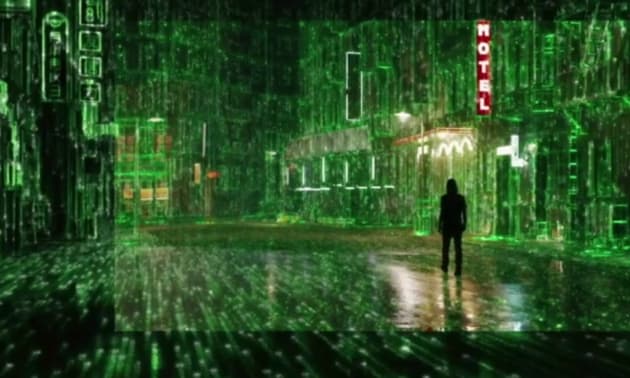
So we last left things in a stalemate situation, albeit a pretty dark and depressing one, with little that’s changed. The machines are still in control of both the real world and our world, which makes us wonder if the sacrifices made by Neo and Trinity were worth it. It’s a conclusion that disappointed many, but I loved it then and I love it now even though The Matrix Revolutions is by some degree the weakest of the trilogy. In any case, it would be pretty easy for the Wachowski’s to continue the series if they ever wanted to, but surely doing it with Neo and Trinity wouldn’t work? How could they be resurrected? Well, as you know they are resurrected in The Matrix Resurrections, an idea born of Lana Wachowski working through the shock of both her parents on dying the same night, though we aren’t given the explanation for this until about half way through. Whether it’s a good explanation is another matter. I’m sure that some fans of the franchise wondered if writers Lana Wachowski [no Lilly this time], David Mitchell and Aleksandar Hemon may simplify matters, even dumb them down a little, for this fourth film, as a reaction to [mostly unwarranted in my opinion but you can read my review of the whole trilogy here] certain criticisms of Reloaded and Revolutions. But that isn’t something that they need to worry about any more. The philosophy is still there, if often easier to digest because of the way that it’s presented, and the plot that they’ve devised is certainly twisty even if certain details don’t make much sense – but then we’ve got two more instalments for that. And they’ve certainly sorted out one of the glaring faults of the first trilogy; the coldness of our two lovers. Indeed this is a slightly warmer film all round while still sticking to that Matrix aesthetic, but it’s also irritatingly meta in places, often going so far as to play scenes from the earlier movies on a screen while variations on said scenes take place in the present day. I thought the Wachowski’s would be above such cynical, feeble crowd pleasing.
But more praise than criticism is still due, even though its opening action sequence, of course a play on one from 1998, doesn’t get as exciting as it should. We, and two others, are watching Trinity, but surely Trinity shouldn’t be losing? We’re intrigued because we don’t know what’s going on and why despite the familiarity of what we’re seeing. We’ve already seen a second heroine, Bugs, and also a new Morpheus, though with a different face and elements of Smith, though don’t worry – Yahya Abdul-Mateen II inhabits the role so well you may forget about Laurence Fishbourne at times. The character is a bit different too, more humorous with ever-changing flamboyant wardrobe. Well it makes sense in this series for returning characters to not be the same – though some are, which gets a little confusing. Now we meet the One himself, except that he thinks his journeys didn’t happen and were just signs of insanity. It would have possibly been good if the script had tried to convince us of this too for a while, but at least we get to enjoy a very well thought through performance by Keanu Reeves, with some very subtle tics and a strong air of suffering, and get to know his character a bit more. But unfortunately the idea of him having created this video game trilogy and being asked to produce a fourth is mostly little than an excuse for “nudge nudge, wink wink” stuff, which ranges from somebody looking out of a large window and saying that the view is almost too good to be real, to a truly excruciating montage set to Jefferson Airplane’s ‘White Rabbit’ where some execs promote the Matrix trilogy in buzz speak for several minutes. Thankfully there’s nothing ever as bad in the rest of the film, but you may be forgiven for not liking where things seem to be going.
Outside the Matrix, Bugs and Morpheus discover Neo’s signal within the Matrix, despite the belief that he’d died. They connect Neo to Thomas, and realise he’d been unconsciously running the node to allow Morpheus to be found. Bugs and her allies enter the Matrix to locate Neo’s body in the real world, and discover that Thomas’s business partner Smith is – surprise surprise – Agent Smith, having kept close watch over Thomas’s activities. He also has a new face, in the form of Jonathan Groff, and he’s amazingly good too even though nobody could ever better Hugo Weaving in the part. Bugs helps Thomas elude Smith, as well as people under the influence of a ‘swarm’ mode. Bugs and Morpheus explain what the Matrix is, and with his perception of reality already waning, Thomas agrees to be extracted. It’s all quite like The Matrix for a while, with familiar beats and visuals, though of course some new people. As before, the trend is for racially diverse casting with no mentionings of ethnicity whatsoever, though it’s possible to say that the black clothes and tattoos most characters have is getting a little staid without some development or variation. The return of one particular character, now hardened and bitter, evokes some poignancy, but a jokey revisit from another, much more flamboyant person just falls flat even though what he says about the superiority of art, music and pre-digital conversation can’t be argued with. He’s one of several Exile programs who want to see the Matrix returned to its former self. The Matrix is revealed to have changed a fair bit, see, with a new and much grander city called Ion, and machines being friendly [it even looks like we’re going to get some cute stuff at times], though an Anomaly is spreading, and Neo needs to weigh his desire to rescue the woman he loves with the possible danger of doing so.
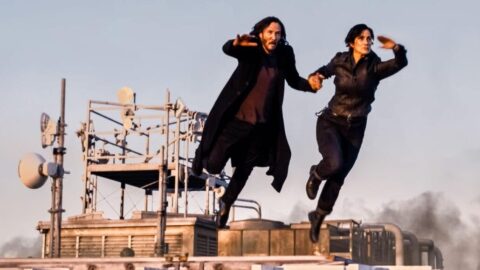
Well, except that he doesn’t, he decides what he wants to do immediately, and gets people to help him incredibly quickly in perhaps the most baffling thing in the screenplay. But in general the story progresses well with a few good turns – and one surprise villain who’s unmasking comes as such little surprise that he may as well have had I’M REALLY A BAD GUY written on his forehead, but at least his connection to the previous films is one of the more interesting. Some may consider there to be two many returnees, though there are just about enough newbies too. Some may also consider there to be not quite enough action scenes for what is the longest film in the series to far – nearly two and a half hours – though many people forget how little action the original film actually had. More to the point, perhaps, is how the writers struggle to find original mayhem to put on screen – a reworked version of Bullet Time isn’t really cutting it. A fight/gun fight on a Tokyo train is promising but seems to suddenly stop before it’s reached its climax, but Neo and the new Smith get in a really good, brutal brawl which is one of the best fights in the series with Groff coming across as genuinely mean and vicious and a real opponent for Reeves, there’s one martial arts melee which is just a little bit shakier in terms of the camerawork than it needed to be [though not horribly so], and the climax is a very well sustained car, bike and eventually helicopter street chase with hundreds of possessed humans joining in, though like some other parts of the film it suffers a bit from being shot in dark, blue-tinged lighting. I guess they’re trying to differentiate from the green we saw in previous films.
Other minor differences include there being more laughs, though not intrusively so; a bit where Neo tries to fly and fails is funny but also rather sad. And, while the usual philosophical aspects like free will versus choice are present and correct, there isn’t large-scale dumps of this stuff, which is both good and bad I guess, though don’t worry, there are plenty of exposition dumps of a similar nature; this is still a Matrix episode after all. But a great deal of effort has been made to get us to care about Neo and Trinity this time. Thomas is continually in love with Tiffany who’s stuck in a controlling marriage, which seems like a lazy device though it pays off towards the end. Too shy to approach her, he prefers to just worship her from afar in the coffee shop that they both frequent, though she certainly notices him. Eventually he decides to make a move, and the resulting conversations are tentative and very well performed by Reeves and Carrie Anne-Moss who finally have the chemistry that they distinctly lacked before. One can’t help but be touched by the way they get closer and she also begins to remember a past she’d blocked out, though possibly their relationship is missing a scene toward the end. Nonetheless, this somewhat more sentimental Matrix episode, which foregrounds the idea of human emotion more than any other, certainly has the heart that some may say the others lacked. It also begins to subvert the concept of The One, something that will probably be developed in the sequels. Lana has mentioned about femininity. I trust her to do this without sinking into the lazy misandry that far too many other productions seem to think is cool and trendy.
Sadly there’s no Don Davis around to do the music score, and the more electronic-heavy effort by Johnny Klimek and Tom Tykwer, while certainly driving the action along, is boringly simplistic and seems to just sling the same two or three pieces together on a endless loop. The Neo/Trinity love theme sounds like it written in a couple of minutes. Some throwbacks of both of the pop and orchestral kind are present though. Of course there’s no way that Resurrections can match the impact made by The Matrix, and some may still wonder if it needed to be made. It does feel a bit disjointed, and largely an exercise in setting some new stuff up, but there are certainly several interesting ways the story can now go. Now I don’t know if the screenplay was altered when the Covid pandemic began, but it rather bravely uses a few bits of language i.e. “sheeple” which have been adopted by those on the questioning side of things, including followers of that extreme conspiracy theory which is based on the premise of these films. Far be it for me to get into that divisive topic here, but the final scene is a literal call for freedom and strength [plus honest to god sentiment] which is hard not to connect to the current global situation where many people rightly or wrongly have their freedoms restricted and some countries may or may not be going too far in their efforts to curb the pandemic. Coincidence? Hmmm. We’ll see whether such ideas become an organic part of matters or are just thrown in there for people to pick up on. For the meantime, The Matrix Resurrections does have its issues, most notably way overdoing the nostalgia, but it’s still good to be back and unplugged again.
Rating: 











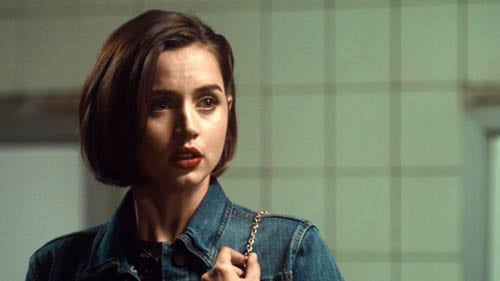
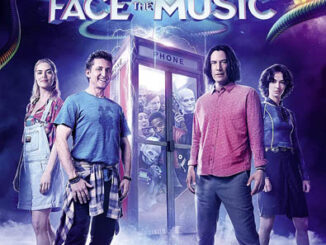
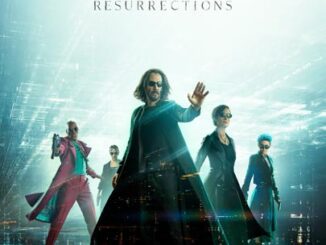
Be the first to comment